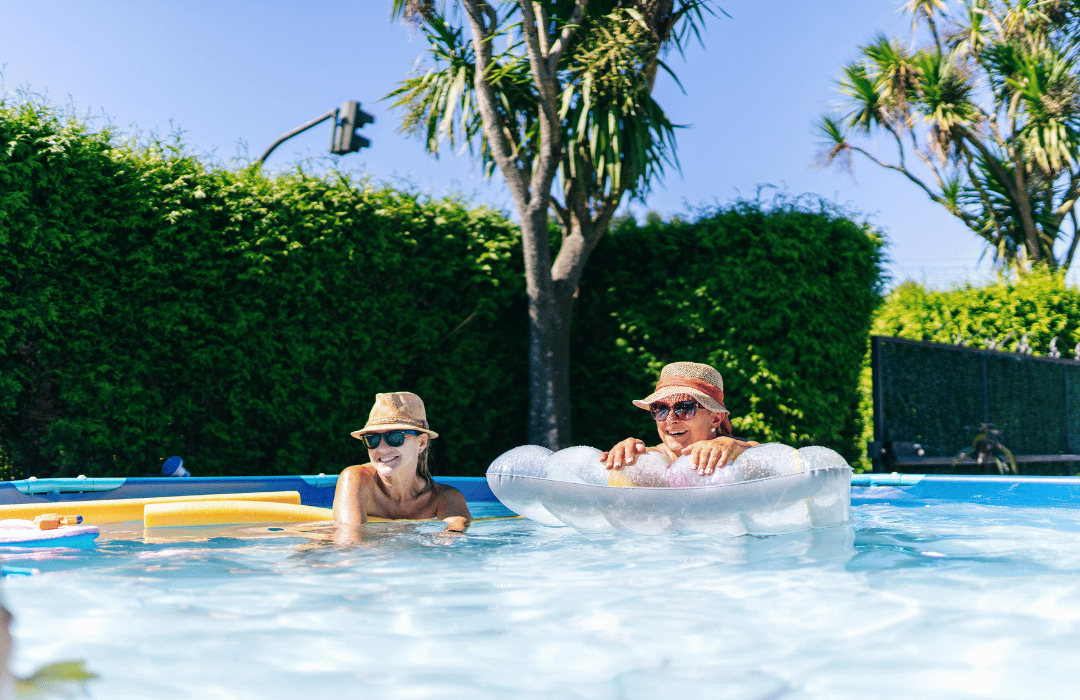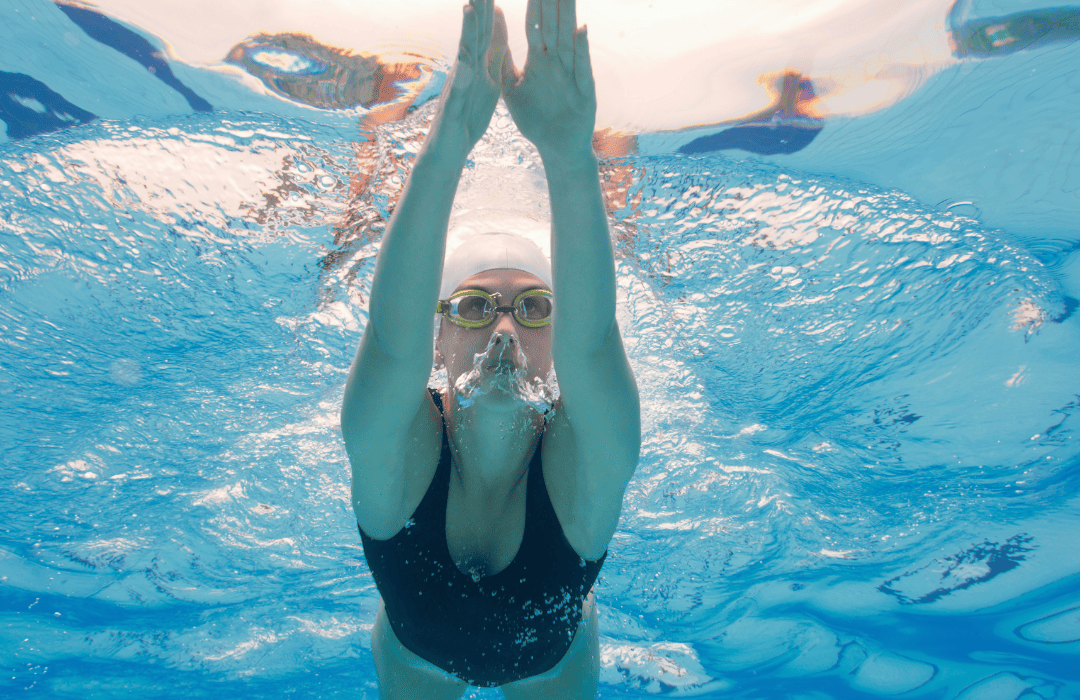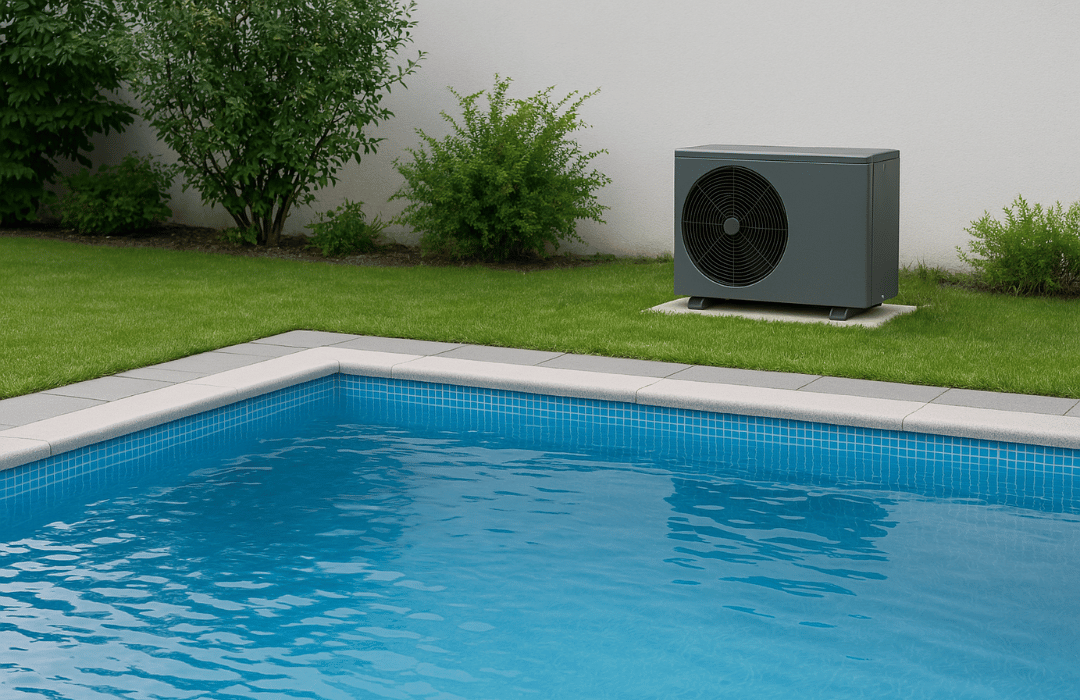Weather conditions aren’t always ideal for enjoying the pool exactly when you want to. However, thanks to modern technology, the swimming season can be significantly extended — with consistently pleasant water temperatures. One of the most effective solutions is a heat pump for the pool. In this article, we explain how it works, what to look for when choosing one, and why it’s worth investing in.
How does a pool heat pump work?
A heat pump uses energy from the surrounding air to heat the pool water. The most popular type – the air-to-water heat pump – extracts heat from the outside air, even at low temperatures, and transfers it to the water via a heat exchanger.
This makes it one of the most energy-efficient heating methods: for every 1 kW of electricity consumed, it can produce up to 5 kW of heat.
These devices are installed outside the building – where air circulation is unobstructed. It is also important that the heat pump is installed no more than 10 meters from the pool to minimize heat loss and ensure stable performance.

Benefits of a pool heat pump
- Extended swimming season – enjoy your pool even in spring and autumn
- Consistent water temperature – regardless of weather conditions
- Cost-efficiency – much more economical than electric or gas heating
- Eco-friendliness – uses renewable energy from the air
What to consider when choosing?
Several factors are important when selecting the right heat pump:
- Pool size and water volume
- Planned usage period – year-round or summer only
- Efficiency (COP) – the higher, the better
- Inverter technology – quieter, more efficient, and longer-lasting
- Availability of service in your country – a manufacturer with local support simplifies long-term use and maintenance
In practice, modern models like the Midas Quick series have proven highly effective. In particular, the Midas Quick 13 is an excellent choice for medium-sized private pools in Germany, Poland, Italy, and other European countries.
Installation – what should you know?
The heat pump should be:
- Installed outdoors, with proper airflow
- No more than 10 meters from the pool
- Placed on a stable, level surface with a vibration-damping base
We recommend having the installation done by a qualified professional – to ensure optimal performance and warranty conditions. 
Maintenance and care
- Regularly clean the filters
- Monitor noise levels and water temperature
- During winter downtime – proper shutdown and freeze protection
With proper installation, the device will operate reliably for many years.
Why buy a heat pump from Nice Pools?
- Devices tested according to EU standards
- Technical support in multiple countries
- Highly recommended: Midas Quick 13 – powerful, efficient, and quiet
Conclusion
A heat pump is a modern, cost-effective solution for pool heating. It ensures comfortable water temperatures, extends the swimming season, and helps save energy. If you value quality and convenience – this is the right choice for you.







 English
English Deutsch
Deutsch Polski
Polski
Comments